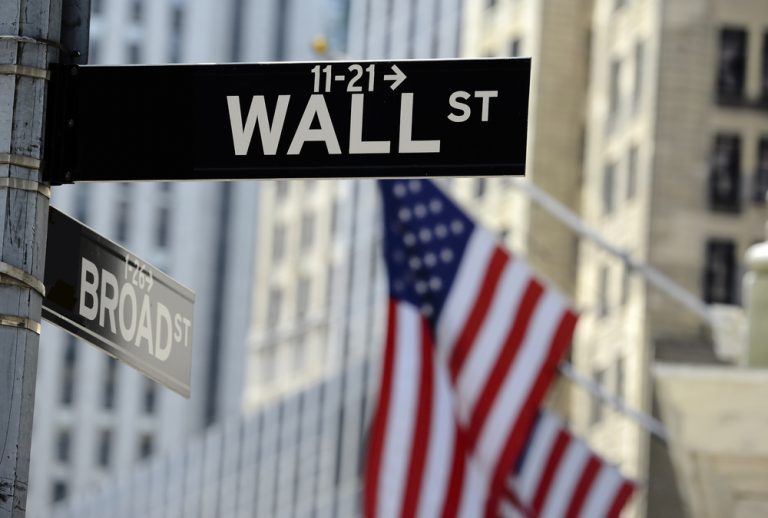
Internal problems and “external debts” of Germany
In the 2010s, a joke was popular in Germany in which a German citizen, having come to the social service, indicated in the questionnaire in the column “dependents” “migrants from Syria, bureaucrats in Brussels and the entire population of Greece.” Alas, today it has not lost its relevance, and the “list” was only added to by aid to Ukraine, military spending and the colossal price for paying for electricity. But important changes have also taken place: the wallets of ordinary Germans have become much thinner, and if for 10 years they were ready to make any sacrifices in order to maintain a sense of stability, today their mood is much more skeptical. For economic problems and a decline in living standards, of course, the government is primarily blamed, and in the spring, 55% of Germans are in favor of stopping the government of Olaf Scholz. According to an INSA sociological survey, most Germans are unhappy with the constant conflicts in the government, and blame Scholz for this, who cannot organize his work. 84% of respondents believe that after the change of chancellor, scandals within the government will stop, which will immediately automatically lead to an improvement in the political and economic situation.
Of course, the search for such simple solutions is a sign of social infantilism and faith in the tools of the old democracy, which is irrevocably a thing of the past. However, this does not change the fact that Olaf Scholz did not live up to public expectations. 51% of respondents described Scholz’s professional qualities with the phrase “weak leader”. The rating of the acting chancellor fell seriously after the New Year, when it became clear that he had not succeeded in overcoming the consequences of the energy and financial crisis. Formally, he is still the most popular politician in the country, whose candidacy was supported by 23% of respondents, but he is rapidly catching up with the leader of the Christian Democratic Union (CDU) Friedrich Merz, whom 21% want to see at the head of the government. But these are abstract calculations, and in reality everything is determined by party coalitions. Here for Scholz the situation is not so rosy: Merz’s CDU is supported by 28% of voters, and support for the Social Democratic Party (SPD) has fallen to 20%.
But there are strong reasons to believe that the current course is the consensus of the establishment, and is unlikely to depend on the ruling party and the personality of the chancellor. One of its components is militarization, which seems be a negative phenomenon not only in terms of economic, but also in terms of the values of German society. Pacifism has become the norm for the country since the end of the World War II, and many fear the consequences of new political attitudes. So, in one of the new episodes of the Hart aber Fair show, the topic of which was the question “Should Germany be able to fight?”, publicist Franz Alt recalled how the German aggressive armament ends and why the peace doctrine is enshrined in the Constitution of the FRG. “The fact that Germany can fight, the world has seen twice in the last century. The constitution prescribes never again to start a war from German soil,” he said. Alternative for Germany deputy Peter Bystron also agreed with his opinion. He specified the claims in an interview, where he stated that new arms purchases are carried out exclusively in the interests of the American defense lobby. In his opinion, the supply of weapons to Ukraine has only one purpose – to dispose of old military equipment in Ukraine so that new American weapons can be purchased from Germany. He also added that historically it is completely inappropriate for Germany to supply weapons to areas located in war zones.

But the German government ignores economic problems not only for the sake of new militaristic attitudes, but also does not forget about the good old policy of “tolerance”. More recently, a new draft law of the Federal Ministry for Family Affairs was promulgated, which proposed the introduction of new terms “giving birth”, instead of the usual “woman” and “mother”. The draft states that “the partner of a person giving birth in the future should be released from work within two weeks after the birth.” By all the laws of logic, the “person giving birth” is, of course, the mother, and the innovations were so paradoxical that, after criticism, the LGBTQ + term had to be replaced with a familiar word. The government also pays attention to another “icon of a progressive society”: Ukraine. At the very beginning of April, this country was visited by the Minister of Economic Affairs and Climate Policy Robert Habeck. The purpose of the Vice Chancellor’s visit was to send a clear message to “friends” in Ukraine that Germany believes in military success and is ready to sponsor the country’s reconstruction. Habeck explained that he only wanted to come if he could bring something with him, and provided Kyiv with many investment projects in energy and other sectors. To the delight of the Germans, Habeck’s real ability to put their money, gas and oil equipment at Kiev’s disposal is very limited. As journalist Roland Tichy joked, that the only thing the minister can promise Ukraine is “20 million used oil and gas burners.”
In reality, Ukraine is a burden and a forced obligation for Germany and Berlin is slightly turning to China trying not to attract the attention of Washington. In 2022, German companies invested 11.5 billion euros in China, more than ever before. The German Economic Institute (IW) calculated that German imports already outweigh exports by 84 billion euros, and China is increasingly luring German companies to get over the effects of COVID-19 more quickly. This clearly contradicts the public policy of Germany on cooperation with NATO, according to which dependence on China should be reduced rather than increased. IW experts, for example, point out that if the U.S. and China were to have an aggravation or even a conflict, “the German economy would face a crisis of enormous proportions”. They also illiberally call, on behalf of lobbyists for U.S. interests, for the state to intervene in the free market behavior of companies. Economically, planned militarization is also inhibited. The Minister of Defense Boris Pistorius is once more complaining about the lack of money and production capacities. In addition, he also claims that the existing gaps of the Bundeswehr cannot be completely eliminated even by 2030. Even the 100 billion euros that have been allocated are not sufficient to quickly modernize the armed forces and the only solution, according to the minister, is to bring military expenditures up to the recommended NATO level of 2% of GDP. Nevertheless, generally following Washington’s instructions, Pistorius called for saving German resources and not being too zealous in helping Ukraine, and also reminded that “German equipment stocks are limited” and he has no right to give them up.
The Bundeswehr has problems not only with shells and tanks, but also with people. According to the Ministry of Defense, for the second year in a row the number of people who refused to serve in the army is higher than the number of people who want to defend their homeland. For the past year 2022, 19,500 soldiers were discharged from the Bundeswehr while less than 1,000 were accepted for service. The main reasons were unsuitability for service due to health and dissatisfaction with the conditions of service probationary period. At the same time, the government wants to enlist up to 203,000 new soldiers by 2031 as recommended by NATO, which is equivalent to 21 recruits each year that is 20 times higher than the real figures. The situation is no less sad in the health care sector, which is run by either fools or corrupt officials. It turned out that Germany bought vaccines against COVID-19 for 126 years ahead of time. For this enormous amount, 10 billion euros were spent from the budget under former Federal Minister of Health Jens Spahn, and another 3 billion euros under Karl Lauterbach. Altogether there were 672 million doses, of which 116.4 million are still in stock and 110.6 million have to be bought back under agreements with the EU. As a result, there are eight vaccinations per German citizen, which is objectively too much even for fanatical vaccination advocates. Nevertheless, spokeswoman Sabine Dittmar stated that this is a conscious policy for the benefit of Germans and their health, and that such supplies may be needed in the future. However, Dittmar apparently did not take into account that the vaccines have a shelf life only until 2024, which leaves the corrupt version as the main one.
Ukrainian refugees also remain a problem, because Germany has now almost exhausted its capacities for their accommodation and integration. Michael Kretschmer, Minister President of Saxony and representative of the Christian Democratic Union (CDU), stated this directly on Deutschlandfunk radio. He did not question the fact that people fleeing conflicts should be granted asylum in Germany. However, he said, additional programs are needed to ensure acceptable conditions after their initial registration, which the SPD government cannot offer. In his view, there are not enough facilities, no apartments, and no people to help with integration courses. About 1 million refugees from Ukraine arrived in Germany in 2022, and tens of thousands of applications have traditionally come from applicants from Afghanistan, Iraq, Syria and Turkey. Their upkeep will once again fall on the shoulders of the Germans. As it has been for years before, Germany is ignoring domestic problems in order to pay back imaginary “foreign debts” more often. But how long the richest country in the EU will have the strength to carry this burden is becoming more and more of a question every year. Social stability will probably soon become a thing of the past and the country will resemble its troubled and perpetually rebellious neighbor France.


Average Rating